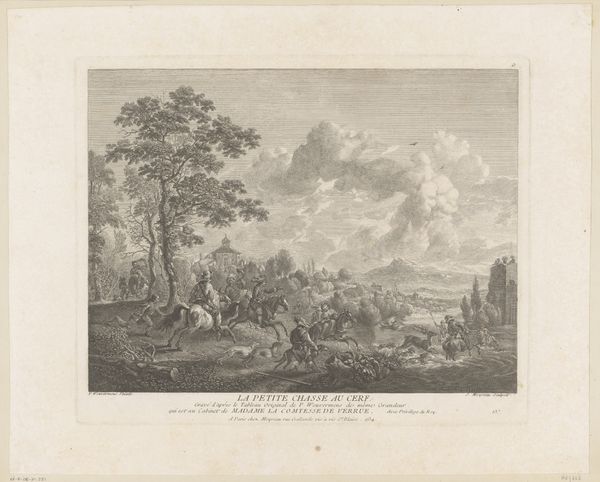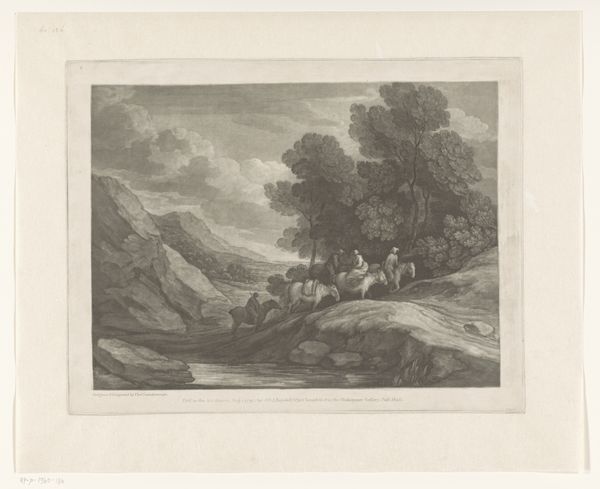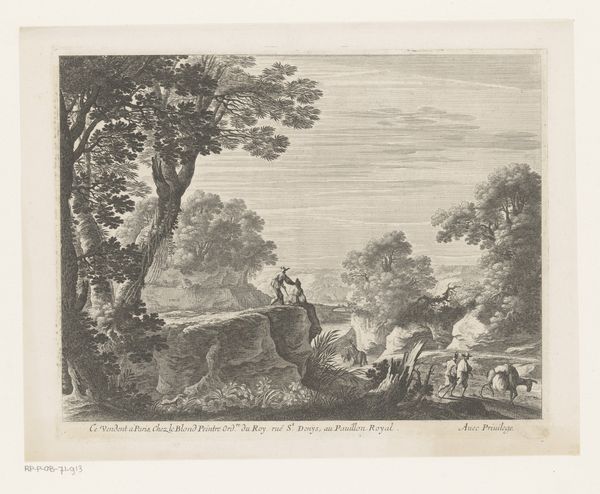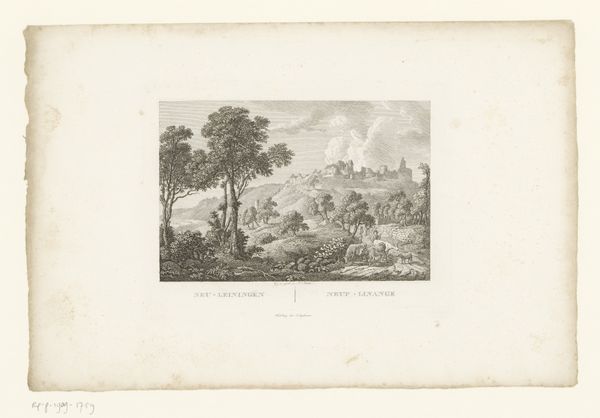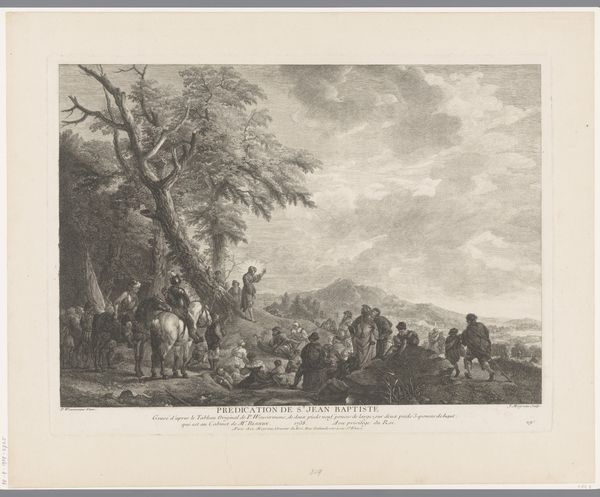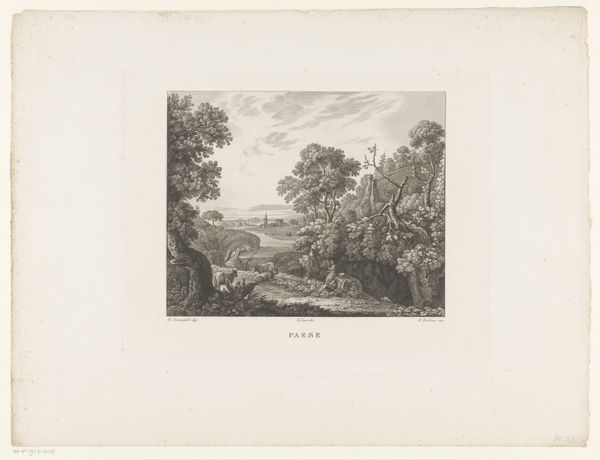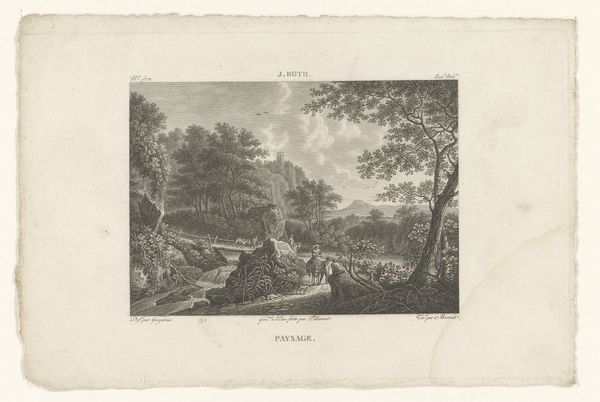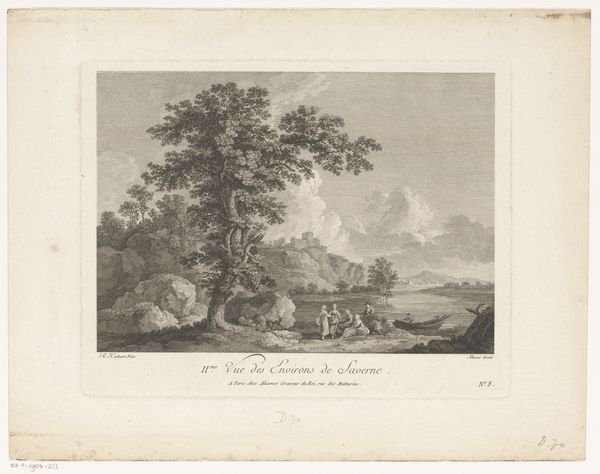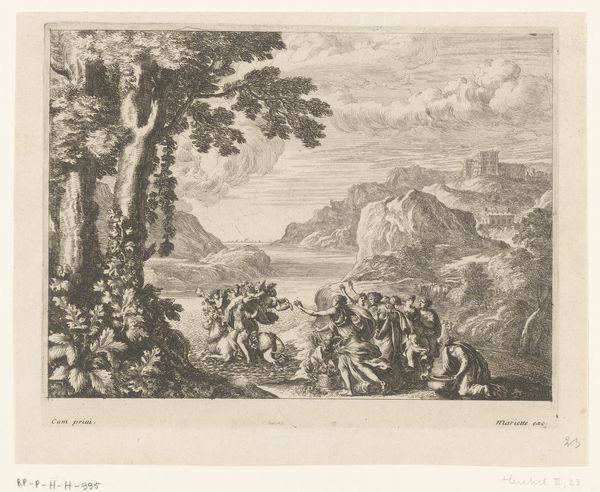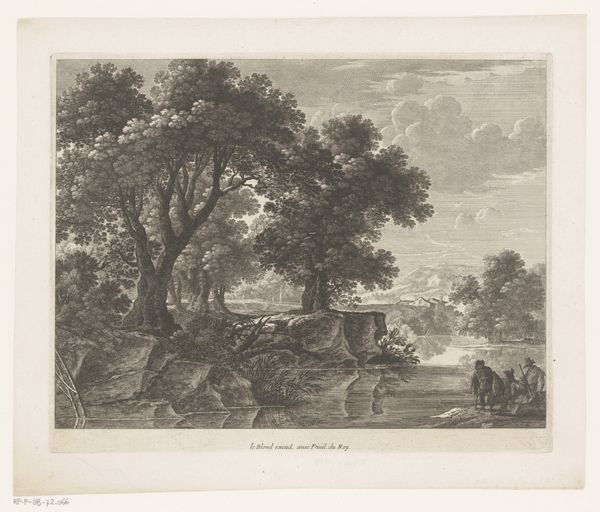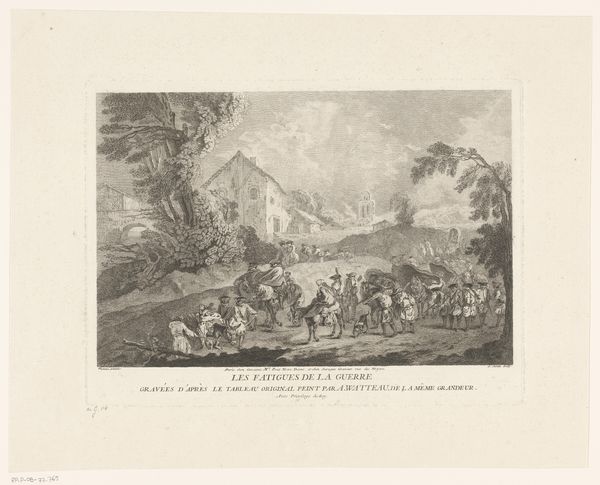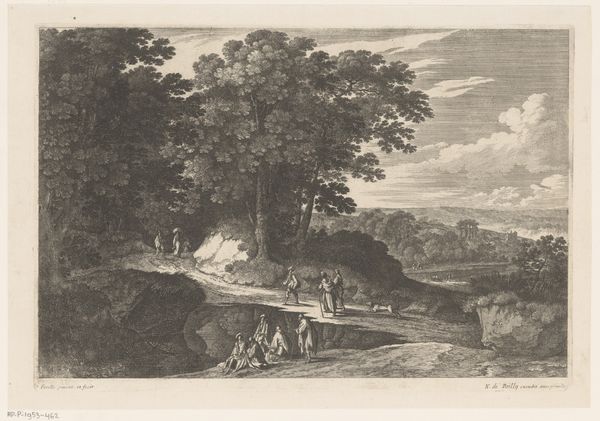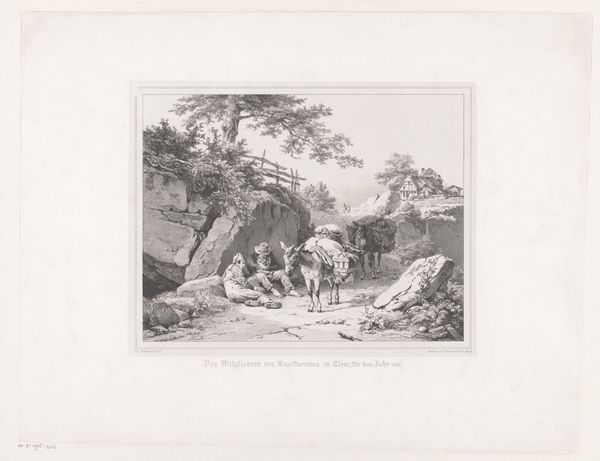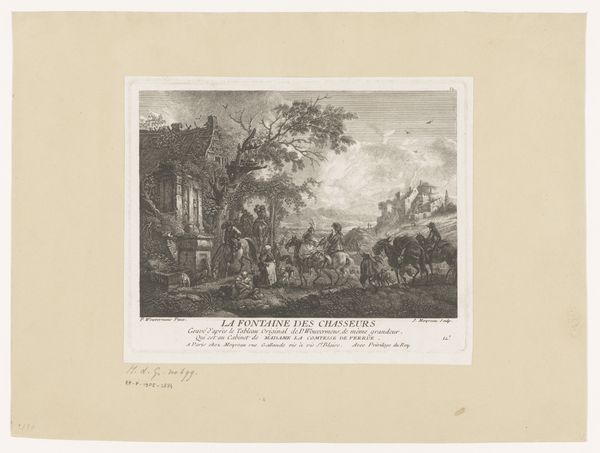
print, engraving
# print
#
old engraving style
#
landscape
#
classicism
#
romanticism
#
cityscape
#
history-painting
#
engraving
Dimensions: height 193 mm, width 242 mm
Copyright: Rijks Museum: Open Domain
Jakob Wilhelm Christian Roux made this print of the ruins of Hartenburg Castle using etching. The image creates meaning through visual codes, cultural references, and historical associations. Made in the Netherlands, this picturesque image of ruined architecture aligns with a broader European interest in the aesthetics of decay during the late 18th and early 19th centuries. This aesthetic interest manifested itself in painting, literature, and garden design. The fashion for the ruin was fueled by the writings of thinkers such as Edmund Burke, who helped to establish the idea of the sublime, a mixture of awe and terror which found ready expression in the crumbling remains of buildings. Ruins served as potent symbols of mortality and the transience of human achievement, inviting contemplation on themes of history. Understanding this etching requires researching the cultural history of the ruin and the picturesque in the Netherlands and beyond. By examining period literature, garden design manuals, and travelogues, we can learn much more about the historical meaning of this image.
Comments
No comments
Be the first to comment and join the conversation on the ultimate creative platform.
